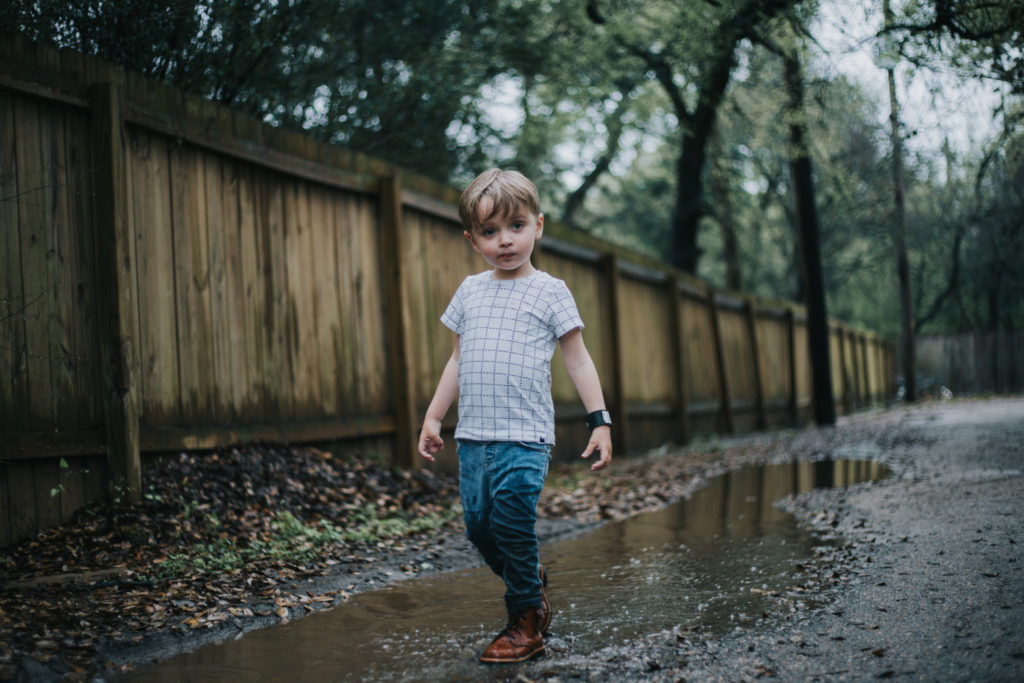
This is a snippet from my book, All Across the Spectrum, that you can pre-order here.
April is autism awareness month. If your child was just diagnosed with autism you are probably feeling a whole lot of emotions. From sadness to relief, I’ve felt them all. I wish they gave you a nice guide to raising a child with autism after your child is diagnosed, but all we got was a few phone numbers to call and an outdated and overwhelming “autism manual”.
From one autism mom to another, I’d like to share my tips for raising a child with autism. Keep in mind that all children on the autism spectrum are unique, but these tips should apply to all nonetheless.
10 tips for raising an autistic child:
1- Therapy. There’s really no shame in getting your child into therapy. Getting an official diagnosis will allow your child to qualify for all kinds of therapy (Speech Therapy, Occupational Therapy, DIR Therapy, and ABA Therapy). Do some research, call around, and find what therapy looks best for your child. We do ABA Therapy and Speech Therapy. While still non-verbal, Charlie has made great progress in other areas (including communicating with an iPad app) which wouldn’t have happened without his amazing therapists. Don’t hesitate to shop around to find the therapy center that fit your child’s needs the best. It’s a big decision so don’t be afraid to be picky!
2- Routine: A fixed schedule is important for a child on the autism spectrum. Most autistic children do not like when their routine is disrupted. They like to know what’s coming. Transitions are hard too, so use a timer if you have to change activity. Tell your child, “okay, in one minute we’re going to go back inside”. It may not work right away but if you’re consistent, they’ll understand the concept of a timer and it will decrease your and your child’s frustration while transitioning from one activity to another.
Every milestone is worth celebrating, no matter how small!
3- Celebrate. Your child may be delayed developmentally. His milestones and successes may be different from his peers – different from what your friends are celebrating about their kids – but they’re totally worth celebrating. Celebrate your child’s victories even if they appear small. The first time Charlie said the sound “buh” for bubbles when he was 3, we celebrated. Your child is developing on his own timeline and that’s OK!
4- One on one time. Take the time to spend quality time with your child. I know it can be difficult because they may not even want you to play with them but do it anyways. Take him or her to the park. Don’t stay home because it’s easier. I made that mistake in the beginning. You have to confront the outside world even if it’s overwhelming and scary for you both. It’ll get easier. Let them explore like you would if you had a neurotypical child.

5- Support: Autism can be isolating. I know this first-hand. It’s important for you to find people you can talk to- people who are going through the same thing as you and who “get it”. Finding support groups online or in your local area is important.
Comparison is the thief of joy
6- Don’t compare: This is hard because you see your friend’s children doing the things you’d pictured yourself doing with your kiddo. They’re celebrating different milestones but it doesn’t mean you shouldn’t celebrate yours (see #3).
7- Praise your child: Most kids on the autism spectrum understand and love positive reinforcement even if they don’t always show it. Congratulate them! Make them feel proud of their accomplishments!
8- Take care of yourself: This is really important. I struggle with this myself but you need to feel good in order to be able to care for your child who may require extra attention. Once in a while, leave the kiddos with a trusted caregiver or babysitter and do something you like. Whether it’s hanging out with your friends, going to Target, or going to the gym, do something that makes you happy. You deserve a break! You need it to function at your best.
9- Ignore negative or ignorant people: You will inevitably meet people who will say things like, “oh but he’s so cute, are you sure he’s autistic?” Or “autism is just a new trend,” or “he just needs a good spanking”. Don’t let these comments get to you and focus on the positive. Focus on your child, focus on yourself, and focus on all the other people in your life who “get it” and support you in your journey.
10- Free resources: There are many free resources and programs for children on the autism spectrum. Programs like DADS and DARS have long waiting lists but they’re worth it. There’s also respite care, Early Childhood Intervention if your child is under 3, and free preschool programs for children with disabilities. It will vary from state to state so ask around. Ask your child’s doctor!

1 in 68 children has autism.
If your child doesn’t have autism, chances are you probably know someone who has an autistic child, or you will at some point. If you’re wondering how you can be supportive of your friend, it’s simple. Don’t act too awkward, don’t change the subject, and ask questions about things you don’t understand. Be understanding, be kind, and be a good listener. The worst thing you can do is ignore your friend. There are definitely a few things I would have loved to hear after my son was diagnosed.
What can you say to a friend whom son was just diagnosed with autism?
- “He’s still the same little boy you’ve always known. Getting a diagnosis and putting a label on him doesn’t change who he is. It’s a tool to get him therapy and the extra help he needs.”
- “What are you up today? Can I stop by with a pizza?”
- “Let me know if there’s anything I can do. You are in my thoughts and your son is lucky to have you as his advocate.”
Autism can be isolating, but it doesn’t have to be.

This was a snippet from my book, All Across the Spectrum, that you can pre-order here.




7 Comments
Hayden
2017-05-31 at 7:33 PMWow – I can’t believe Autism numbers are up to 1 in 68. As a father who has an autistic nephew I can say with all certainty being supportive and positive to my brother was a big help.
CJ
2017-07-11 at 8:39 PMThis is one of the most helpful articles I have read so far on autism. I am just starting in on treatment for my “high functioning” 10 year old. The information available is overwhelming and exhausting. I feel more encouraged after reading this article. Best wishes to you and your happy flapper.
The Autism Cafe
2017-07-12 at 2:16 PMThank you so much for your comment! Best wishes to your family.
Casie
2017-08-10 at 2:34 AMWe just recently had our 5 year old son diagnosed and it was exactly what this mama knew was coming. While high functioning, my son does lack in conversational skills and social skills. This article helped to remember to remain patient and realize I’m in this journey called life with him. We are learning together.
Charli Miller
2017-10-09 at 8:32 PMThank you for writing this article! My 3 year old daughter Isabelle was diagnosed with high functioning autism spectrum disorder a few months ago and it has been very emotional for me. Your words give me hope that things will get better. Thank you!
Un écureuil un peu bizarre
2020-01-08 at 6:30 PMBonjour ! Un petit commentaire francophone (j’aurais volontiers écris en anglais, mais le peu d’énergie et de concentration que j’ai aujourd’hui ne me le permet pas trop..)
Je voulais vous remercier pour ce blog. Je suis autiste Asperger, et bien que le TSA fasse parti de mes intérêts spécifiques, je n’ai que trop peu de connaissances sur d’autres formes d’autisme (sévères, Kanner…). Vos témoignages me font prendre conscience d’une autre réalité. Une réalité parmi des millions d’autres.
En effet, je suis une fervente croyante du concept de neurodiversité. J’ai cru que vous aviez des convictions différentes mais que vous respectiez sans problème les convictions d’autrui, ainsi, je n’hésite pas à vous dévoiler les miennes.
Par ailleurs, je suis sincèrement désolée pour ce que certaines personnes (trop nombreuses) du mouvement #ActuallyAutistic / de la neurodiversité peuvent vous dire, car les campagnes de harcèlement venant de ces individus ne devraient pas venir d’un mouvement prônant une forme de paix et des valeurs telles que l’acceptation de la différence… De mon point de vue, elles ne reflètent pas ce que devrait véritablement être le concept de neurodiversité. 🙁
Bref, vos articles m’apportent de nouvelles données, des témoignages différent de ce tout ce que j’ai pu apprendre jusqu’à présent (et ce que j’apprécie justement concernant le sujet de l’autisme, c’est de pouvoir apprendre des témoignages toujours très différents les uns des autres !)
Pour ne pas trop quitter le sujet de cet article : vos conseils sont d’une très grande utilité et bienveillance, autant pour les autistes que pour leurs parents, et vos conseils de fin sont très justes, sans drama, très réconfortants, alors même que je n’ai jamais vécu le fait d’avoir un enfant autiste sévère (je n’ai pas encore d’enfant, mais je me dis souvent qu’il n’est pas impossible que mon enfant soit également autiste sévère, alors je garde ce genre d’information précieusement dans un coin de ma tête)
Les conseils 3 et 7 m’ont particulièrement touchée : à mon échelle personnelle, ma proche famille n’a pas hésité à me féliciter sur les difficultés – petites comme grandes – que j’ai pu surmonter au fil de ma vie, et je peux confirmer qu’ils peuvent apporter beaucoup de bien-être !
Encore une fois, merci 🙂